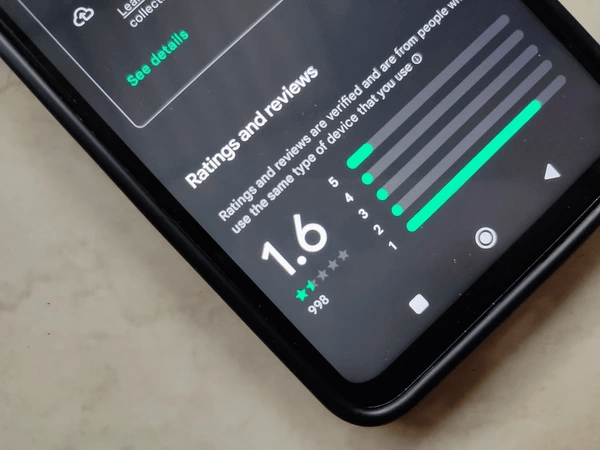In today’s online world, Google reviews play a pivotal role in shaping a business’s reputation. Potential customers often rely on these reviews to form opinions, making them a deciding factor in purchasing decisions. But what happens when the feedback isn’t positive?
What Are Google Reviews and Why Do They Matter?
Google reviews are customer-generated evaluations of businesses that appear on Google Business Profiles and Google Maps. They provide valuable insights into customer experiences and directly influence trust and credibility.
For businesses, managing these reviews is critical. A high rating attracts new customers, while negative reviews can steer them away. Proactively engaging with feedback—positive or negative—demonstrates that a business values its customers and is committed to delivering excellent service.
The Impact of Negative Google Reviews
Negative reviews can damage a business’s reputation and affect its bottom line. Dissatisfied customers often highlight communication gaps, poor service, or unresolved issues. If left unaddressed, this feedback can:
- Erode trust: Customers are less likely to engage with a business they perceive as unreliable.
- Reduce sales: Negative reviews may drive potential clients to competitors with better ratings.
- Hurt long-term relationships: A tarnished image can impact customer loyalty and repeat business.
For instance, a poorly handled viral complaint could result in lasting reputational harm and lost revenue. While deleting reviews may seem like a quick fix, it’s not always the right solution.
Should You Delete Negative Google Reviews?
The idea of removing negative Google reviews is tempting, but businesses must approach it carefully. While it’s appropriate to request removal of reviews that violate Google’s policies—such as fraudulent, spammy, or offensive comments—deleting legitimate reviews can backfire.
Why?
- Customers value transparency. Removing genuine reviews can make a business appear dishonest.
- Regulatory concerns exist around consumer protection laws that mandate fair representation.
- Ignoring negative feedback instead of addressing it may result in customer backlash.
Instead of focusing solely on deletion, businesses should prioritize engaging with reviewers and addressing their concerns to rebuild trust.
How to Report and Request Removal of a Google Review
If a review violates Google’s guidelines—such as containing false information, spam, or offensive content—it’s possible to report it for removal. Here’s how:
- Locate the review: Log into your Google Business Profile and find the problematic review.
- Check Google’s policies: Ensure the review clearly violates rules, such as being inappropriate or misleading.
- Report the review: Use the “Flag as inappropriate” option next to the review and explain the reason for removal.
- Monitor Google’s response: It may take time for Google to evaluate and act on your request.
While reporting reviews can help eliminate false content, businesses should remain cautious. Misusing this process or attempting to silence honest feedback can damage credibility.
The Consequences of Deleting Reviews
Deleting negative reviews—when not warranted—comes with risks:
- Customer backlash: Customers may feel censored, leading to a loss of trust.
- Legal issues: Removing legitimate reviews could violate consumer protection laws.
- Brand damage: Transparency builds credibility; lack of it can harm long-term relationships.
Instead of deleting, businesses can use negative reviews as opportunities to demonstrate accountability and commitment to improvement.
How to Handle Negative Google Reviews Effectively
Rather than viewing negative reviews as a threat, businesses can use them to build stronger customer relationships and enhance their reputation. Here’s how:
1. Respond Thoughtfully and Promptly
A timely, respectful response can turn a negative experience into a positive one. Best practices include:
- Acknowledge the concern: Show empathy and validate the customer’s experience.
- Offer a solution: Propose steps to resolve the issue or clarify misunderstandings.
- Stay professional: Avoid emotional or defensive language.
For example:
“Thank you for your feedback. We’re sorry to hear about your experience and would like to make things right. Please contact us directly so we can resolve this for you.”
2. Address the Root Cause
Negative reviews often highlight areas where improvements are needed. Use this feedback to identify and resolve recurring issues:
- Analyze common themes in customer complaints.
- Train staff to improve service quality.
- Monitor feedback regularly to ensure concerns are addressed swiftly.
3. Encourage Positive Reviews
Proactively requesting reviews from satisfied customers can improve your overall rating and balance out occasional negativity. Strategies include:
- Sending follow-up emails after purchases or services to invite feedback.
- Engaging with happy customers on social media and gently prompting reviews.
- Offering incentives like discounts for future purchases in exchange for honest reviews.
Legal Considerations for Review Removal
Businesses must tread carefully when managing reviews, as legal implications can arise from improper actions:
- Consumer protection laws prohibit misleading practices, including unfair removal of reviews.
- Potential lawsuits: Customers may take legal action if they believe their concerns are being censored.
The best approach? Maintain transparency, address feedback openly, and avoid attempting to silence critics. Handling reviews ethically fosters trust and strengthens brand integrity.
How to Improve Your Reputation Despite Negative Reviews
Improving your online reputation is about consistent effort and a focus on customer satisfaction. Here’s what you can do:
- Deliver exceptional quality: A strong product or service naturally leads to positive feedback and customer loyalty.
- Engage with customers: Respond to feedback—good or bad—and demonstrate your commitment to improvement.
- Leverage reputation management tools: Platforms like BrightLocal or Google Alerts help monitor reviews and respond promptly.
By prioritizing quality and customer care, businesses can turn even negative feedback into an opportunity for growth.
Final Thoughts
Negative Google reviews are inevitable, but how you respond to them defines your business. Instead of fearing bad feedback, embrace it as a chance to improve, build trust, and showcase your dedication to customer satisfaction. Focus on delivering value, encouraging positive reviews, and maintaining transparency to create a reputation that earns customer loyalty.

